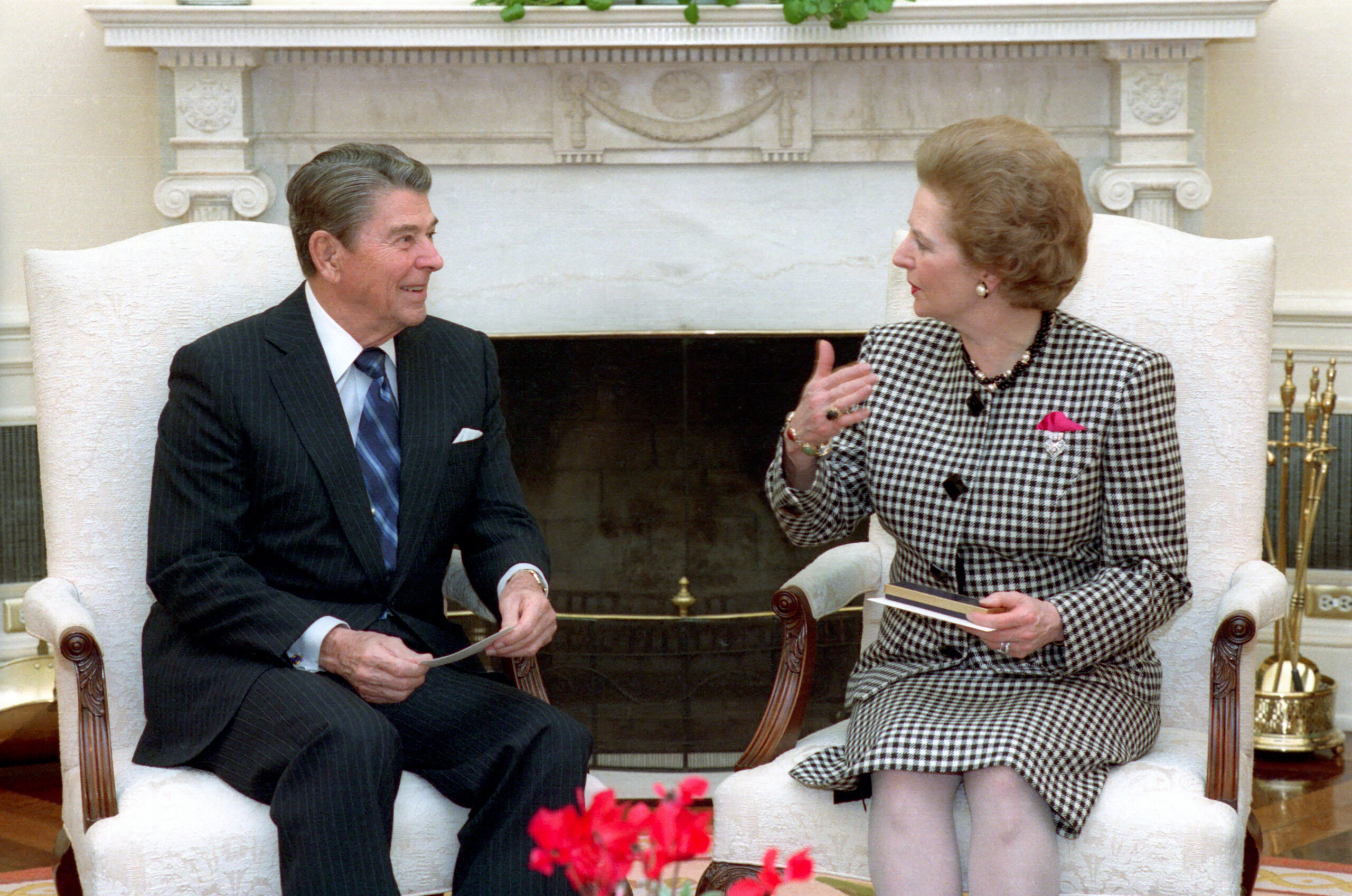Anis Chowdhury says governments should recalibrate their policies for longer-term resilience, sustainability, social cohesion and shared prosperity.

(Pixabay)
By Anis Chowdhury
Inter Press Service
 The coronavirus pandemic seems to have finally forced governments around the world to ditch their obsession (at least for the moment) with delivering budget surplus. As stock markets tumble, stimulus measures, worth billions of dollars, are announced to boost investor confidence and consumer spending to keep economies running.
The coronavirus pandemic seems to have finally forced governments around the world to ditch their obsession (at least for the moment) with delivering budget surplus. As stock markets tumble, stimulus measures, worth billions of dollars, are announced to boost investor confidence and consumer spending to keep economies running.
The shift in fiscal strategy is welcome; hopefully the measures will provide some relief to the struggling individuals, families and businesses. But they are short-sighted in so far as most proposed measures do not address the underlying economic malaise even before COVID-19 pandemic.
Fraught with Risk
Even though some individuals and businesses may face cash-flow problem, this is not a liquidity crisis. It is primarily a supply shock to the global production or “value” chains due to factories shut down to limit the spread of the virus in China, which accounts for close to 30 percent of global manufacturing.
However, this massive supply shock is spilling into demand shocks as people are unable to go to work, earn and spend. Significantly, in an over-financialized world, stock markets dominate as a source of wealth, making economies hostage to the “investor sentiment.” Therefore, sharp stock market declines worsen the negative wealth effect, further reducing aggregate demand.
Therefore, if the pandemic persists and supply chain disruptions become widespread with countries in “lockdown,” the stimulus package may exacerbate the dynamics of negative supply-demand spill-overs. This can result in rising inflation and unemployment or “stagflation.” The risk of a deep global stagflation, worse than the one in the 1970s, is quite high, especially when governments are acting alone.
Moreover, the band-aid solutions such as pop-up clinics or one-off payments to vulnerable individuals and businesses will not be able to weather the crisis if it escalates. Following the neo-classical counter revolution against Keynesian and development economics in the 1980s, the public health care and social protection systems have been seriously undermined, rendering them awfully inadequate to handle the pandemic.
The stimulus package is also unlikely to ally the panic or fear, and people may not spend the one-off hand-out they receive.

Cones lined up March 19, 2020 in preparation for the opening of a drive-through screening and testing line at Joint Base San Antonio-Lackland, Texas. (U.S. Air Force, Katherine Spessa)
Deeper Malaise
Panic is a symptom of heightened uncertainty that has become a permanent feature of neo-liberalism that triumphed with the coming to power of Prime Minister Margaret Thatcher in the U.K. and President Ronald Reagan in the USA in the 1980s.
Thatcher once said, “there is no such thing as society. There are individual men and women and there are families. And … people must look to themselves first… There is no such thing as an entitlement.” In his inaugural speech, Reagan said, “Government is not the solution to our problem, government is the problem.”
Both in fact echoed the 18th-century Scottish philosopher David Hume who believed that a nation was a collection of individuals. Thus, Thatcher and Reagan promoted individualism in place of collectivism or solidarity, where “greed is good.” as infamously epitomized by Gordon Gekko of the 1987 iconic film “Wall Street.”
Thatcher and Reagan shrunk the role of the state in preference of privatization; deregulated the economy in favor of unfettered markets; bashed the union movement on behalf of capital; freed finance to rule the real economy; and used international financial institutions, such as the IMF and the World Bank to force open developing economies to multinational corporations and finance capital.
These so-called structural or microeconomic reforms were carried out in the name of boosting productivity and accelerating prosperity. However, what we have witnessed is sustained declines of productivity, falling share of labor income, rising job insecurity, decimation of national manufacturing capabilities, and mounting debts — both government and private.
Obsessed with returning the budget to surplus, the governments have abrogated their economic management responsibility to central banks. Easy money from unconventional monetary policies boosted asset price, thereby exacerbated inequality, and increased vulnerability of the financial system.
Governments continued to cut social protection in the name of fiscal consolidation, while offering generous tax cuts for the rich and large corporations, expecting them to invest their greater largesse. Unashamedly, they pay tax consultants and their ilk to find tax loopholes for “optimizing” evasion.
Extra-ordinarily excessive executive salary packages, manipulation of stock markets and wage-theft have become a norm when “greed is right.” This has accelerated wealth concentration and income inequality, a constant drag on aggregate demand, sustained through debt-financed consumption.
Meanwhile people lost trust in their governments. Only 43 percent of citizens in OECD countries trust their governments. Faced with diminished social protection, they see governments – captured by big businesses – turn blind eyes to corporate excesses, and deny climate crisis despite horrific climate related extreme weather conditions.

President Ronald Reagan and Prime Minister Margaret Thatcher in the Oval Office, 1988. (White House, Wikimedia Commons)
Developing Countries
Developing countries, with limited capabilities, are particularly vulnerable as their economies have become more dependent on international trade and finance and investment after decades of economic liberalization, openness and government capacity erosion. Certainly $15 million from the UN’s Central Emergency Response Fund will help vulnerable countries battle the spread of the COVID-19.
The IMF and the World Bank have announced emergency support packages. But most of the money from the IMF and the World Bank are loans, often attached with conditions favoring their most influential shareholders. The debt burdens of developing countries will thus rise with global growth faltering.
Opportunity to Change Course
Although political leaders of the G20 largest economies took bold measures initially in response to the 2008-2009 global financial crisis (GFC), they wasted the opportunity to rein in financial abuses and excesses, cap executive remuneration, improve tax progressivity, address rising wealth concentration and income inequality, strengthen social protection, including public health.
They also ignored the recommendations of the United Nations Stiglitz Commission report on reforming the international monetary and financial system, and the UN secretary-general’s call for a Global Green New Deal to simultaneously stimulate recovery, address the climate crisis and reverse growing inequality.
Such coordinated global actions would have put the global economy on a more inclusive and sustainable path, more capable of handling a global pandemic and its economic and social consequences. Instead, the global economy has been artificially kept afloat with unconventional monetary policies which contributed to many undesirable side-effects.
Let us not waste this one. Therefore, the stimulus packages should be carefully designed to rebuild the social protection and national health systems. It is well known that “universal systems find it easier to mobilize resources and adapt rules and practices than fragmented, private ones that have to worry about who pays whom and who is liable for what”, as recently highlighted in the Economist.
For longer-term resilience, sustainability, social cohesion and shared prosperity, governments should recalibrate their policies to achieve balanced global growth; to create decent jobs; to address rising inequality; and to tackle climate crisis.
This would require inclusive policymaking at the global level, involving developing countries. At the national level, institutionalizing social dialogue – involving workers, professionals, businesses and civil society organizations – will be necessary.
Anis Chowdhury is adjunct professor at Western Sydney University and the University of New South Wales (Australia). He has held senior United Nations positions in New York and Bangkok.
This article is from Inter Press Service
The views expressed are solely those of the author and may or may not reflect those of Consortium News.
Please Donate to Consortium News.
Before commenting please read Robert Parry’s Comment Policy. Allegations unsupported by facts, gross or misleading factual errors and ad hominem attacks, and abusive or rude language toward other commenters or our writers will not be published. If your comment does not immediately appear, please be patient as it is manually reviewed. For security reasons, please refrain from inserting links in your comments, which should not be longer than 300 words.

Good ideas Mr. Chowdhury: The Fed obsessively focuses on the stock market by nursing, burping, and coddling these parasitic speculators. Another reason the Fed should be abolished.
If the Economy was a three ring circus the stock market would not be under the Big Top. It would in the same tent as the Bearded Lady and the two headed frogs (am i paraphrasing someone?). It is a an economic sideshow.
The stock market as we know it is welfare for the well off. Spare me the baloney about how well the pension funds do in the stock market. In a free market (don’t laugh) the pension funds would do better and give the usurers a run for their funny money.
please don’t say “governments should recalibrate”, instead let’s say that governments can- or have better recalibrate. now’s not the time to be soft, so let’s try to fix some of these problems instead of choosing not to. besides greed, complacency is a real problem (shall we put more fluoride in our drinking water?). it makes everyone think that, you know, yeah maybe we should, and with all our resources we definitely could, but hey, we won’t, because then we’ll have to make an effort and we’re too comfortable right now. as with so many other things, good ideas get lost in the banks and that’s a darn shame.
Mr. Chowdhury is very astute as to what we “should” do. However, after 64 years of life as a citizen of the USA, the only observation I can think of as relevant is “wish in one hand, crap in the other, and see which one fills up.”
I agree with this recommendation. However, it runs right into the similar recommendations to reform our economy and politics to better share prosperity and limit the risk to those most at risk. This means national health care, national sick leave, income supports, housing provisions, and of course food security. It should mean education for all too, because the really smart people who could be educated are a national resource we ought not to waste, and they are found by the genetic lottery in every economic cohort.
These are the things Bernie Sanders and Liz Warren were discussing. There are the things rejected by “we can’t do that” Democrats seeking “normalcy” of doing what we’ve always done (before Trump).
We need these changes. This crisis only makes obvious to all what has been apparent to many for a long time now.
Now consider if all those trillions lost to the economy were spent protecting the vulnerable while the rest of the world went about business as usual like in those pictures of packed US and Australian beaches in recent days. As a bank teller told me face to face with a shrug (after sniffling), “we’re all going to get it anyway.”
By redirecting resources we would create a new industry and actually increase employment. Lease hotels to quarantine the susceptible, beef up home delivery services for the elderly, moon suits in aged care facilities, etc.
Several trillion dollars would go a lonnng way to protect those who need it.
WTF is the author talking about?! In the US Wall Street has been rewarded with massive bailouts already in the form of interest rate cuts and a securities buying spree by Uncle Sam. With stocks so cheap now this is be perfect for stock buybacks.
Meanwhile there is no money for health services that have been nickle-and-dimed to near death by the financial-congressional-insurance complex, and no financial support for the hundreds of millions citizens now devoid of income.
Every crisis is an opportunity. The opportunity here is not to build robust public health services, it is to double down on capitalist policy of socialism for the rich and austerity for the masses.
I agree with this author, however, the Devil is in the details and none are provided. The beginning of this article should be headlined: “Underlining cause of health crisis is insolvent western financial/monetary system “. The followed by opening paragraph should begin thusly:
“To solve the underlying systemic global health crises, new financial architecture is urgently needed”. Step 1: President declares national bank holiday while Congress convenes special session to pass reinstatement of bank separation under current proposed “Glass-Steagle” legislation, to be signed into law by President. Addition legislation to be pass creating Public national, State and municipal banking to replace insolvent Federal Reserve Bank ( which will be terminated, it’s money printing functions continued within Treasury Dept). New credit begins based on congressional mandated need for protecting private depositor banks, pension funds, expanded national infrastructure projects, current and future social programs, military needs, etc. Step 2: President convenes a global conference of all major powers, ie, US, EU, UK, Russia, China, India, Japan. Subject to be focused on the need for bank separation in all countries plus initiate establishment of new “Brenton Woods” world monetary system of Fixed exchange rates, replacing current insolvent floating exchange rate system. Step 3: begin process of FDR type global commitment for development of sovereign nation state economies of post colonial period with 21st century technologies. Step 4: Global conference to include peace negotiations in all area war “hotspots” declaring immediate ceasefires. Step 5: global conference to begin coordinating international effort to combat current Coronavirus and other new coming viruses.
“governments should..”
Should is a word used by supplicants oblivious of purpose.
Will is a word used by practitioners informed by purpose.
Did is a word used by practitioners obfucating agency in facilitation of purpose.
I worthy notion, Mr. Chowdhury. Alas, there are two fundamental problems. Firstly, as our governors and federal officials have demonstrated all too well, having a remedy for their actions is only an afterthought. And then the other problem is the escalating global response that we are ‘fighting a war’ with COVID-19. Trump now a wartime president MSM declares. (Apparently blind to the fact that every American president in recent memory is a war time president, but I digress). Management by war never brings care to the fore, and that is needed now more than ever. I can’t think of a worse response than encouraging war management. Tragically, that is the reality of where we find ourselves.